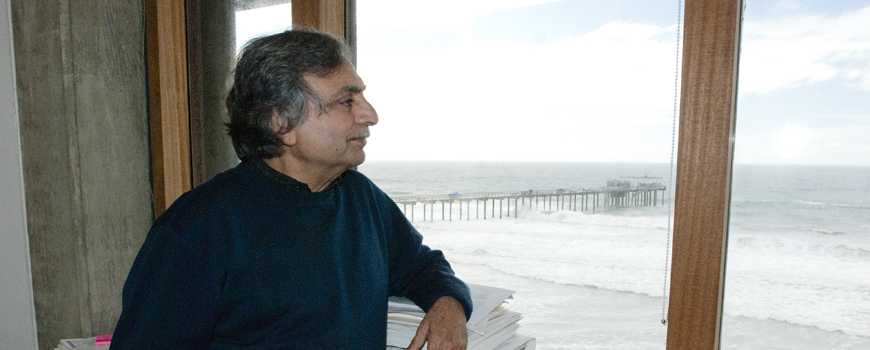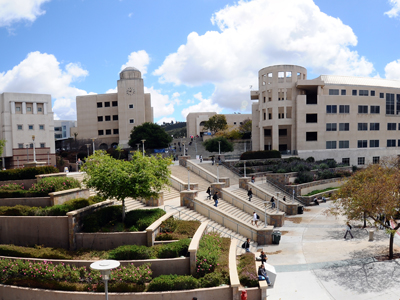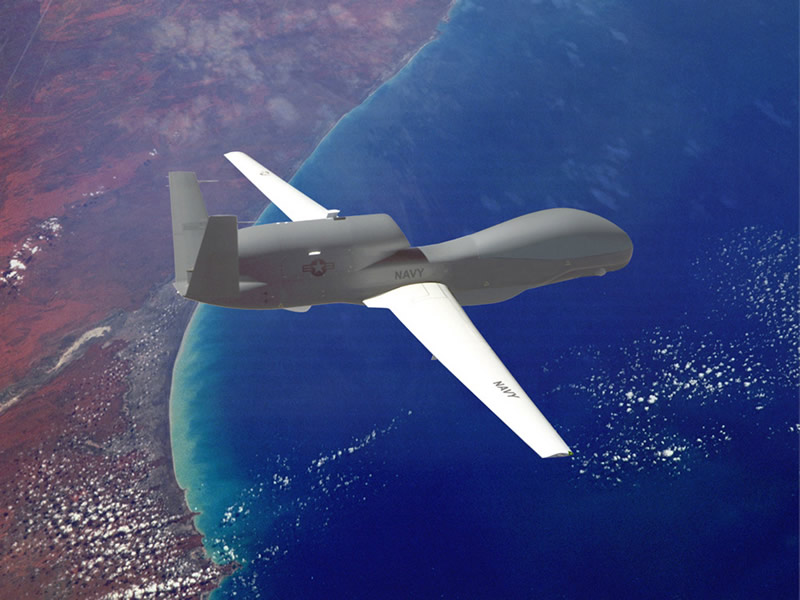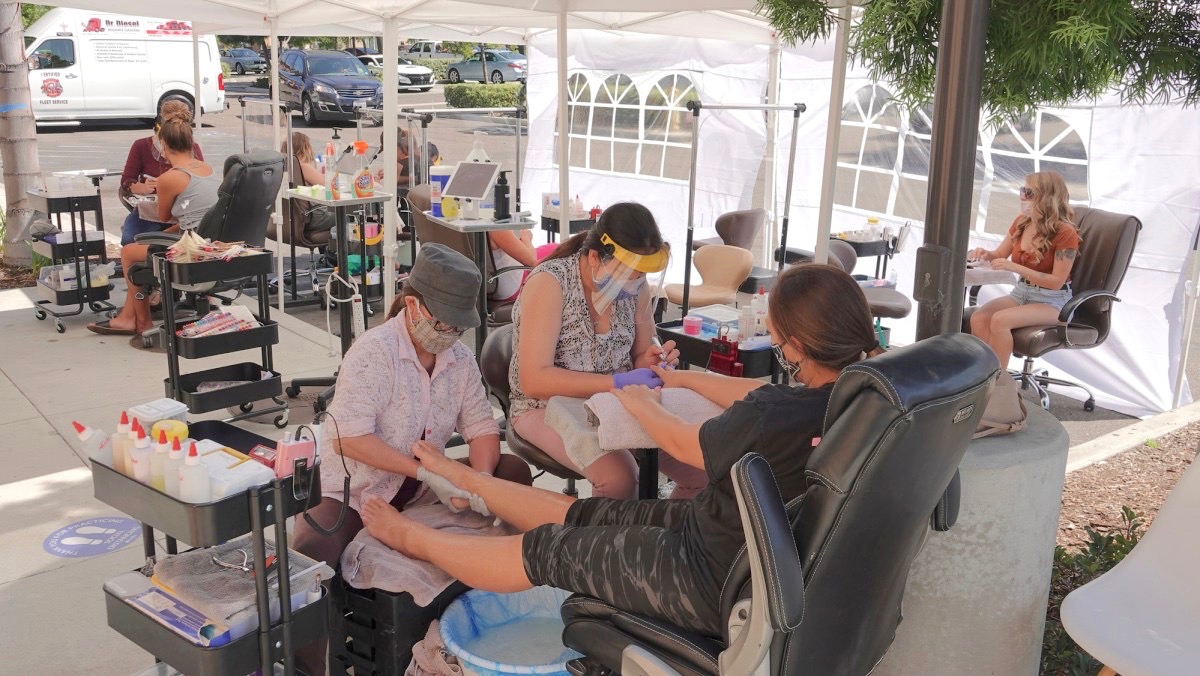Daily Business Report-Jan. 7, 2016
The forum will focus on how the defense industry sparked San Diego’s innovation economy.
Innovation Crossroads
Forum to Explore Defense and Aerospace
Industries’ Impact on Region’s Economy
CONNECT and UC San Diego Extension will present Innovation Crossroads on Jan. 21 — a forum that will explore the importance of the defense and aerospace industries in nurturing this region’s innovation economy.
The forum will feature a conversation between nationally celebrated journalist James Fallows of The Atlantic magazine and executives from global technology leaders ViaSat, Solar Turbines and the Center for the Advancement of Science in Space (CASIS).
“Our community’s deep military roots laid the foundation for San Diego’s innovation economy, which is why we’re thrilled to present this year’s Innovation Crossroads event; it will explore how the defense industry sparked our innovation economy and where San Diego could go in the future,” said Greg McKee, CEO of CONNECT. “This year’s topic is pivotal; the technology we’ve uncovered just in recent years in the defense, aerospace, and communication industries, is remarkable and will steer us for decades to come. We’re looking forward to having a deeply insightful discussion with Mr. Fallows and our three incredible panelists.”
Panelists

Fallows will moderate the discussion between panelists Rick Baldridge, president and COO of ViaSat, Gregory H. Johnson, president and executive director of CASIS, and Pablo Koziner, president of Solar Turbines.
Among the questions the panelists will cover include:
• What are the cutting-edge, next-generation innovations and products being developed now and how will they reshape our economy and our daily lives?
• How do federal policies coupled with market demands influence whether the promise of these technologies is realized?
• What emerging careers are being fueled by these new technologies? How do ensure we have the talent needed to bolster these evolving technologies and industries?
• Are public investments sufficient to encourage the development of these new fields? How can we better garner investment from federal agencies such as NASA?
The forum will be held from 5:30 to 8:30 p.m. on Jan. 21 in the auditorium of The Scripps Research Institute, 10620 John Jay Hopkins Drive, San Diego.
Cost: Pre-registration (available until Jan 19, 11:59 p.m.): $15 CONNECT members, $20 for general public. Registration (after Jan 20, 12 a.m.): $25 for all.
To register for the event, click here.
For more information on CONNECT, visit www.connect.org.
______________________________________________________

Foundation Awards UC San Diego
Nearly $1 Million for Ocean Study
The Gordon and Betty Moore Foundation’s Marine Microbiology Initiative has awarded a three-year, $994,633 grant to Farooq Azam, professor of microbial oceanography at UC San Diego’s Scripps Institution of Oceanography. Azam and his team are working to better understand the ecology of marine microbes, which play a significant role in the ocean’s food chain and carbon cycle, and how climate change may impact the processes of these organisms.
Gordon Moore, co-founder of Intel, and his wife Betty, established the foundation in 2000 to foster path-breaking scientific discovery, environmental conservation, patient care improvements, and preservation of the special character of the Bay Area. The Marine Microbiology Initiative was launched four years later to support investigation of important microbial ecosystems in the sea; its current goal is to uncover the principles that govern the interactions among microbes and influence the microbially mediated nutrient flow in the marine environment. The initiative has accelerated the rate of discovery in the field of microbial oceanography, enabling researchers to uncover the immense diversity of microbes in the ocean and the important roles they play in regulating both the ocean environment and our atmosphere.

Cal State San Marcos Receives Grant
To Build American Indian Studies Program
The National Endowment for the Humanities has awarded California State University San Marcos a Humanities Initiatives Grant to build a 21st century American Indian Studies Program.
The 18-month project will enhance the existing minor, but also assist in the development of a major in American Indian Studies. Professional development workshops will begin in spring 2016 with a goal to develop new courses for delivery at CSUSM beginning in the fall.
“The American Indian Studies Department, created in fall 2015, will be able to develop courses and curriculum models that are timely, research based and thoughtfully designed by allowing faculty to engage in guided academic discussions with the feedback of regional, tribal subject matter experts,” said Joely Proudfit, associate professor of sociology and American Indian Studies.
Humanities Initiatives Grants strengthen and enrich humanities education and scholarship at Hispanic Serving Institutions, Historically Black Colleges and Universities, and Tribal Colleges and Universities. Currently there are more than 110 federally recognized American Indian reservations in the state of California, 18 of which are in San Diego County.
“Faculty will be provided assistance from the California Indian Culture and Sovereignty Center in the integration of materials into current and new courses to strengthen and enrich the humanities courses currently offered,” said Proudfit. “The project will create a model for the development of an AIS Department in mainstream universities.”

UC San Diego Researchers Link Higher Risk
Of Leukemia to Low Sunlight and Vitamin D
Epidemiologists at the UC San Diego School of Medicine report that persons residing at higher latitudes, with lower sunlight/ultraviolet B exposure and greater prevalence of vitamin D deficiency, are at least two times at greater risk of developing leukemia than equatorial populations.
The findings are published in the Dec. 4, 2015 online issue of PLOS One.
“These results suggest that much of the burden of leukemia worldwide is due to the epidemic of vitamin D deficiency we are experiencing in winter in populations distant from the equator,” said Cedric Garland, adjunct professor in the Department of Family Medicine and Public Health and member of Moores Cancer Center at UC San Diego Health.
“People who live in areas with low solar ultraviolet B exposure tend to have low levels of vitamin D metabolites in their blood,” Garland said. “These low levels place them at high risk of certain cancers, including leukemia.”
Few foods are natural sources of vitamin D, which is more abundantly produced when ultraviolet radiation from sunlight strikes the skin and triggers synthesis.
The UC San Diego study analyzed age-adjusted incidence rates of leukemia in 172 countries from GLOBOCAN, an international agency for research on cancer that is part of the World Health Organization, comparing that information with cloud cover data from the International Satellite Cloud Climatology Project.

CONNECT Honors Global Hawk with
William Otterson Innovation Award
CONNECT awarded its highest honor for a technology or product developed in San Diego to the Global Hawk unmanned aircraft system, manufactured by Northrop Grumman Corp.
The William W. Otterson Award was given in recognition of Global Hawk’s significant impact on society and quality of life.
Global Hawk earned the award for its record-breaking endurance, vital intelligence, surveillance and reconnaissance capabilities, its support to science missions and its disaster relief responses to wildfires, hurricanes, tsunamis and earthquakes.
“Global Hawk has always been on the cutting edge of innovation, from its first flight in 1998, to our current efforts to fly any current or future sensor at any time,” said Mick Jaggers, vice president and program manager, Global Hawk, Northrop Grumman. “Global Hawk flies worldwide but is directly tied to San Diego — its development birthplace. William Otterson’s efforts to evolve San Diego as a world-class technology community played a role in Northrop Grumman’s decision to establish its Unmanned Center of Excellence in San Diego. We have a strong connection to this city and are honored to accept this award.”
The William W. Otterson Award is named after CONNECT’s first executive director, an early Internet entrepreneur, who worked tirelessly to create a technology hub in San Diego.

NASSCO Delivered Three Lead Ships in 2015
General Dynamics NASSCO delivered three lead ships in 2015: USNS Lewis B. Puller, the Isla Bella and the Lone Star State. The company said each vessel represents three new and separate ship classes and highlights the diverse portfolio of commercial and government contracts for the San Diego-based shipbuilding company.
In June, NASSCO delivered the USNS Lewis B. Puller to the U.S. Navy, the first ship in the Expeditionary Base Mobile class. The ship is capable of supporting multiple missions including Air Mine Counter Measures, counter-piracy operations, maritime security operations, humanitarian aid and disaster relief missions.
In October, NASSCO delivered the world’s first liquefied natural gas-powered containership, the Isla Bella, to TOTE nearly two months ahead of schedule.
Most recently, NASSCO delivered the first ECO Class tanker, the Lone Star State, to American Petroleum Tankers. The new ECO Class tanker is the first of a five-tanker contract between NASSCO and APT, which calls for the design and construction of five 50,000 deadweight-ton, LNG-conversion-ready product tankers with a 330,000 barrel cargo capacity.
CityView Acquires Little Italy
Land for Apartment Complex
CityView, an investment management and development firm, said it has acquired the land for the site of its new AV8 apartment project in Little Italy. CityView is providing equity capital from its Southern California Fund II to partner with San Diego-based CityMark Development in the project’s development.
The proposed AV8 apartment community is a 30,000-square-foot site located at 2101-2175 Kettner Blvd., between Ivy and Hawthorn streets.
The project will feature a six-story building containing 129 residential units, 7,600 square feet of retail space, and 2.5 levels of subterranean parking. CityView plans to preserve the historic front entrance of the building that formerly housed an auto-body repair shop.
Groundbreaking on the AV8 project is slated for early 2016, with completion expected by spring of 2017. The project’s architects are Tanner Hecht Architecture and Van Tilburg, Banvard & Soderbergh.
Personnel Announcements
Michael Bishop Reappointed
To Physician Assistant Board

Michael Bishop, 65, of San Diego, has been reappointed to the California Physician Assistant Board by Gov. Jerry Brown. Bishop has served on the board since 2012.
Bishop has served as an attending anesthesiologist and clinical professor of anesthesiology at the University of California, San Diego since 2006. He was staff anesthesiologist at the Commonwealth Orthopedics Surgery Centers from 2004 to 2006, at Henrico Doctors Hospital from 2003 to 2004, at Fauquier Hospital from 1993 to 2003, at Smyth County Community Hospital in 1993 and at Fredericksburg Anesthesia Associates from 1992 to 1993.
Bishop earned a Doctor of Medicine degree from the University of California, San Francisco School of Medicine. The position does not require Senate confirmation and the compensation is $100 per diem. Bishop is registered without party preference.




